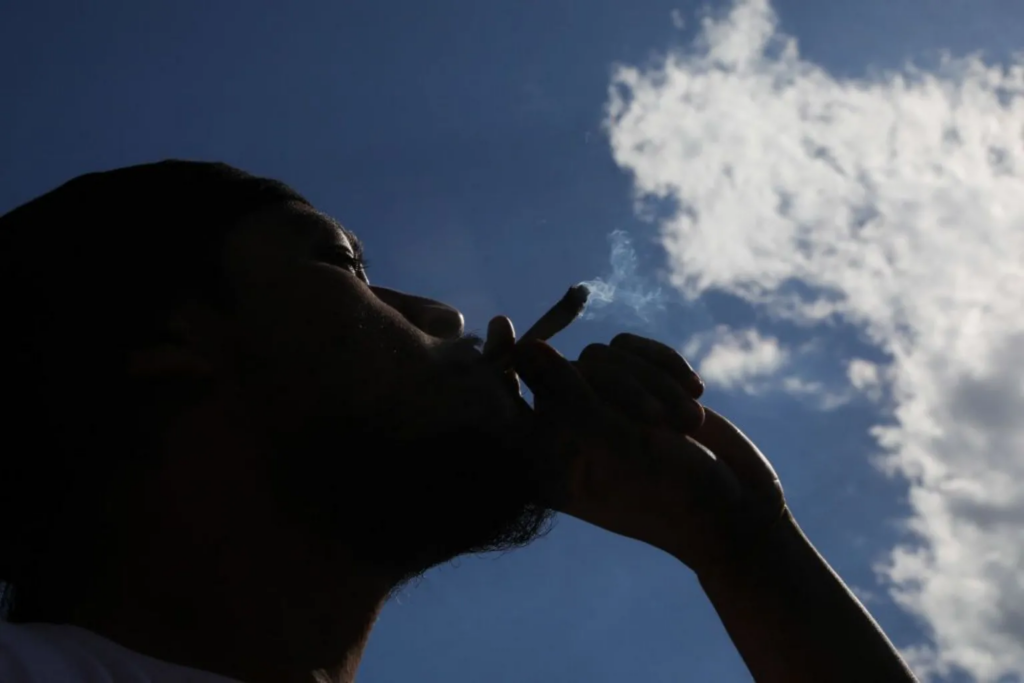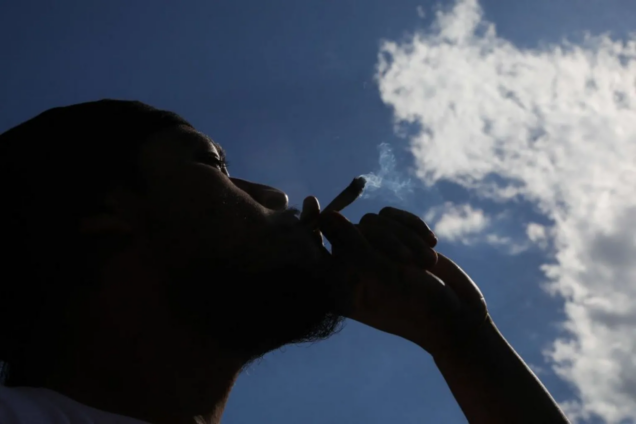
Audio By Carbonatix
The number of Americans who smoke cannabis on a daily or near-daily basis now exceeds those who drink alcohol as often, a study has found.
The research, published in the journal Addiction, is based on data collected by the National Survey on Drug Use and Health over four decades.
In 2022, the survey recorded an estimated 17.7 million daily cannabis users, higher for the first time than the estimate of 14.7 million daily drinkers.
Alcohol still remains the more widely used substance of the two.
But the study found that, between 1992 and 2022, there was a 15-fold increase in the per capita rate of those who reported daily or near-daily use of cannabis.
Less than one million people said they used cannabis nearly every day in 1992, the lowest reported usage since the study began in 1979.
Dr Brooke Worster, the chief medical officer at EO Care, a medicinal cannabis firm, said that while there was increased use for a variety of reasons, "taking away the taboo" had led to more people openly reporting they used the drug.

"The rates have not changed as dramatically as the survey indicates," she told the BBC. "People don't feel as scared to admit they're using it."
She added that the industry for legal cannabis products had also exploded in the past two decades, shaping a marketplace that includes many older adults too.
"It's not just a 20-year-old pothead in a dorm room any more," said Dr Worster.
Recreational use of cannabis is allowed in 24 states and the District of Columbia, while 38 states have legalised its medicinal use.
The government has so far resisted calls to legalise or decriminalise the drug at the federal level.
However, in the most significant drug reform in more than half a century, the justice department moved earlier this month to reclassify cannabis from a Schedule I controlled substance on a par with heroin, to a Schedule III substance.
President Joe Biden said: "Far too many lives have been upended because of our failed approach to marijuana."
Common misconceptions of cannabis as a "gateway" to other drugs have not been borne out by medical research over several decades, Dr Worster noted, and the majority of users do not progress to harder drugs.
But she said that younger adults and those who use high-potency products are at risk of contracting a cannabis-use disorder.
Cannabis-use disorder does not lead to organ damage or death unlike alcohol or opioid-use disorders, but it can cause that health and social problems that greatly impact a person's quality of life or even their safety.
"It signifies the need for guidance and oversight for high-frequency users," Dr Worster said.
Latest Stories
-
Securing children’s tomorrow today: Ghana launches revised ECCD policy
1 hour -
Protestors picket Interior Ministry, demand crackdown on galamsey networks
1 hour -
Labour Minister highlights Zoomlion’s role in gov’t’s 24-hour economy drive
1 hour -
Interior Minister receives Gbenyiri Mediation report to resolve Lobi-Gonja conflict
2 hours -
GTA, UNESCO deepen ties to leverage culture and AI for tourism growth
2 hours -
ECG completes construction of 8 high-tension towers following pylon theft in 2024
2 hours -
Newsfile to discuss 2026 SONA and present reality this Saturday
3 hours -
Dr Hilla Limann Technical University records 17% admission surge
3 hours -
Meetings Africa 2026 closes on a high, Celebrating 20 years of purposeful African connections
3 hours -
Fuel prices to increase marginally from March 1, driven by crude price surge
3 hours -
Drum artiste Aduberks holds maiden concert in Ghana
3 hours -
UCC to honour Vice President with distinguished fellow award
4 hours -
Full text: Mahama’s State of the Nation Address
4 hours -
Accra Mayor halts Makola No. 2 rent increment pending negotiations with facility managers
4 hours -
SoulGroup Spirit Sound drops Ghana medley to honour gospel legends
4 hours

